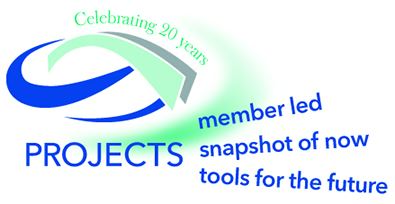AMOSSHE member higher education providers that increased their online Student Services delivery in 2011/12 |
College students who are active daily on Facebook |
The number of case studies used to produce the project |
Infographic sources: Socialmediainfluence.com and AMOSSHE 2012 Members’ Survey.
BackgroundDevelopments in digital and social media represent a rapidly changing environment with a huge societal impact. According to socialmediainfluence.com, in 2010 there were 50 million tweets every day; now the figure stands at 340 million. Active users of Facebook have grown from 500 million to 901 million over the same period. In 2010 there were 2 billion YouTube views per day; this doubled to 4 billion in 2012. According to the IT consultancy Gartner, more than one billion people worldwide will use online social networks this year. It is self-evident that students are using social media within their higher education experience and some may have a particular preference for using new technologies. There is an increasing blending of the digital with the social: 400 YouTube links are tweeted every minute; 150 years worth of YouTube content is viewed every day through Facebook. Nearly 40% of social media usage is through a mobile device (all figures from socialmediainfluence.com). Where do Student Services managers stand in relation to these rapid and significant developments? Based on feedback from a request to the AMOSSHE Jiscmail list some months ago, Student Services colleagues across the higher education sector are making some use of digital and social media tools but there is little or no evidence of engagement with the issue strategically. While there is a myriad of generic technological guidance available to potential users of these technologies, and examples of information and support directed at students (for example, how to develop a digital "footprint") there is no obvious reference point on effective practice specifically for managers working in a Student Services context. The toolkit resulting from this project proposal would provide that practical resource – representing a tangible benefit to the profession in a high profile and fast-moving area. Previous work by AMOSSHE has demonstrated that the effective use of IT in a Student Services context can be an area of particular challenge for our members – as such, this project is focussing on a theme that is both of great significance in the current and future student experience, and of immediate direct benefit to members. |
Aims and objectivesThe objective of this project is to produce a toolkit for managers to support effective use of digital and social media in Student Services. The University of Sheffield envisages that the toolkit would contain:
Importantly, the contents of the toolkit will be aimed at Student Services managers, not technology experts. MethodologyThe methodology is as follows. To develop the strategic framework and the self-assessment tool, the project team will build on work already started at the University of Sheffield, to research and benchmark good examples of digital and social media strategies:
In particular, the project team are looking at USA models, where IT practice tends to be better developed. The team have an established link with members of the IT Knowledge Community within NASPA. These colleagues are keen to assist and they have already provided some helpful research leads and reference sites. The project team would intend to have the draft toolkit "sense-checked" by members of that knowledge community to validate its contents against international best practice. To populate the case studies section of the toolkit, the project team plan to include a combination of:
Top tips will be distilled from the work described above, as a reflective exercise towards the end of the project. The student "voice" will be integral throughout the life of the project. This will be secured primarily through input (already agreed) from the University of Sheffield's Student Union sabbatical officer team and professional staff from the Students’ Union marketing department, alongside contributions from the USA interns mentioned above. In addition the project team envisage a specific reflective piece providing a student perspective as an element in the toolkit.The team have strong endorsement for the project from the President of our Students’ Union (see below). Intended outputsA published toolkit in PDF format, estimated at a total of 10 to 20 pages, of which the project team envisage around 10 pages would constitute the strateg,ic, self-assessment and related material; and around 10 pages would comprise the case studies. Subsequent to the completion of the project the team are likely to transfer the content from the PDF toolkit to a more interactive website format. This would constitute an additional phase of work, not forming part of the proposal being made here, and it would ensure that the output from the project continues to be updated and developed and thus has an extended longevity and additional impact over time. |




